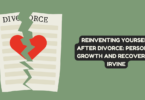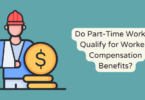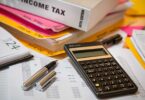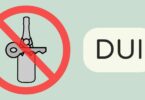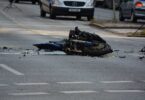
Premises Liability
Premise liability is one of those legal terms everyone needs to know. It comes into play when someone is injured on another’s property because of unsafe or defective conditions.
Premise liability cases involve personal injury, and it is up to the injured person to prove negligence on the property owner’s part. And, just because the injury happened on private property doesn’t mean the property owner was negligent.
Types of Premise Liability Injuries
Various types of personal injuries cases qualify as premise liability cases. A personal injury can happen anywhere and on any premises.
- Slip and fall
- Poor maintenance of the property
- Accidents involving snow and ice
- Defective conditions or equipment
- Dog bites
- Swimming pool accidents
- Elevator or escalator accidents
- Fires
- Water leaks or flooding
- Amusement park accidents
- Toxic chemicals or fumes
- Negligent or inadequate security
What is the property owner’s duty of care?
Some states require a property owner to exercise reasonable care and maintenance of their property for all people that might be on that property. However, Georgia utilizes a rule that limits the property owner’s duties depending on the type of visitor on the premises.
Invitee. An invitee is a person that has the property owner’s express or implied consent to enter and be on the property. It is up to the landowner to keep the property reasonably safe for the invitee.
Licensee. A licensee has the landowner’s express permission to enter the property but is also coming to the property for their own purposes. Salespeople fall under the licensee category, and a property owner has a lesser duty to warn about dangerous conditions.
Trespasser. A trespasser obviously does not have permission to enter a property. Landowners don’t owe a duty to a trespasser unless the trespasser is a child. An excellent example of a child-involved trespasser is a kid wanting to jump a fence to swim in an uncovered or unsafe swimming pool.
Property owners’ duty of care and premise liability gets tricky fast. It is why finding an experienced personal injury attorney is the best plan of action regardless of the seriousness of the accident and injuries.
Examples of Premises Liability Cases
Slip and fall. Slip and fall accidents happen everywhere – restaurants, parking lots, shopping malls, etc. If you slip and fall because of broken flooring, or wet surfaces, you may have a solid case against the premises owner.
Dog or other animal attacks. In some cases, an animal bite falls under premises liability laws. An example is if a property owner knows a dangerous dog on the premises and does nothing to enforce rules and protect other tenants, they are liable for any injuries or damages to the victims.
Toxic chemicals. Exposure to harmful substances such as asbestos, pesticides, and mold can be a premises liability case. It is up to the property owner to follow laws and safely keep and store dangerous substances.
Electrical Accidents. It is the failure of the property owner to keep the invitees, patrons, or residents safe. If injury to death happens due to exposed or faulty wiring, it can fall under premises liability law.
Proving Premises Liability Cases
If you or someone you know have suffered injuries because of a property owner’s carelessness, you could be eligible for compensation. But, it is up to you to prove that the property owner is at fault for your injuries and damages. It is why it is a good idea to find and hire an experienced premises liability attorney. They will help you assess your case, collect evidence, and build the best case possible.
With your lawyer’s help, you want to prove several things in your premises liability case.
- The defendant owns, occupies, manages, or leases the property the accident occurred on. It will prove that it was up to them to maintain the premises.
- The defendant was negligent by failing to maintain the property, causing a dangerous condition, or failing to remedy a hazardous situation.
- You must prove that you suffered harm or injury due to their negligence.
Evidence is the only way to prove any type of case. When it comes to premises liability cases, it isn’t always easy. But, the more proof you have, the better you and your attorney can pursue compensation.
- Pictures are always helpful if you can get them. Wet floors or icy parking garages are easier to capture than other hazards. You want to take them on the day of the accident so that the property owner doesn’t have time to ‘fix’ the problem.
- If a police officer or property owner takes an accident report, get a copy as soon as you can. In the case of no report, you write down everything that happened while it is fresh in your memory. Witness statements are some of the best evidence if you have them.
- Keep all medical bills and statements from your medical professionals. They are the two most critical parts of proving a personal injury case.
The most important thing to remember is that you don’t have to pursue compensation in a premises liability case alone. The Stoddard Firm has experienced premises liability attorneys that will guide you through getting the justice you deserve.

